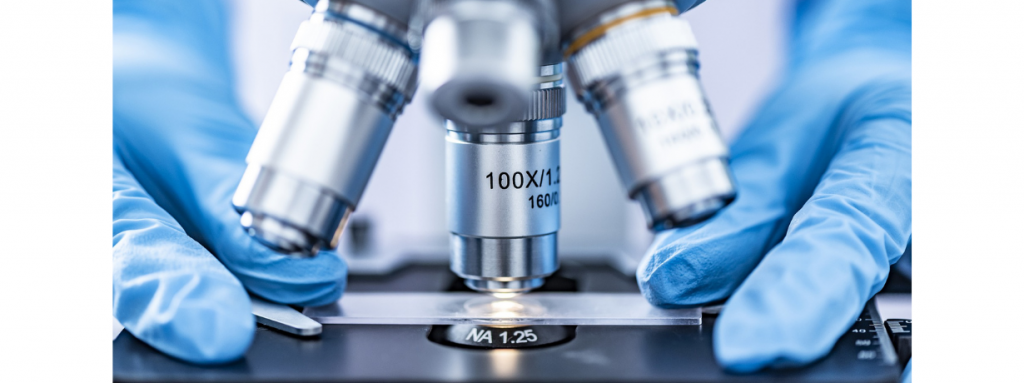Co-author: Shonali Bose
7 min read
Asian technology enabled businesses are increasingly pivotal to the region’s economic growth and are sought after by investment portfolios around the world. As technology continuously proves itself as a platform with the ability to drive positive global change, the COVID-19 pandemic and its economic effects have only amplified the value it can bring to both portfolios and impact.
To discuss how technological investments have shaped both portfolios and impact during the COVID-19 pandemic, specifically in Asia, we hosted a Webinar featuring two notable regional investors and AVPN members, Openspace Ventures and Teja Ventures.
Openspace Ventures is a VC focused on early stage tech companies in Southeast Asia and has impact and ESG embedded in its portfolio. Openspace’s existing portfolio companies such as Gojek, Halodoc, Topica and Biofourmis, are already solving vital problems in their respective geographies and improving the lives of many.
Teja Ventures is the first gender lens VC fund for emerging Asia, investing in early stage technology companies for the She Economy. Their portfolio companies reflect the core consumption needs revolving around a woman’s life cycle, with a focus on digital distribution, health and wellness and financial inclusion.
We had the honour of hosting this discussion with Shane Chesson, Partner and Founder at Openspace Ventures, and Virginia Tan, Founding Partner at Teja Ventures. The discussion was moderated by Jaclyn Seow, Head of ESG and Impact at Openspace Ventures. Read on to gain their key insights on post-COVID investment trends and opportunities as well as how technology can be a vital tool to democratize access to core needs and address urgent global challenges.
How can we mobilize populations to solve urgent issues within their societies?
Sustainable growth is as challenging as it is crucial as countries attempt to solve systemic issues within developing economies. It is becoming more apparent that philanthropy and government alone cannot solve these deep-rooted issues, and that capital markets must find new ways towards sustainable solutions.
Could technology be the catalytic tool necessary to address these global challenges? Virginia Tan discussed the newfound access it provides, in particular to women, who previously were disintermediated. As COVID has accelerated certain trends in future markets, for example health and wellness, and empowered by digitalisation, women are now “conduits to these markets” more than ever . Women have a statistical ability to shape household food and healthcare decisions, have a unique attention to wellness, and an openness to trying new products. They are also more likely than men to search for health information online and purchase health products and services online. These characteristics could positively shape the way communities mobilize towards specific health trends while allowing an underserved population to be key market makers in a growing industry.
The importance of using this technology in a productive way lies in providing access to those who may not have it and technology’s ability to act as a force multiplier.
How do we provide access?
With almost 2 billion people not having access to modern technology, start-ups and innovators must come up with solutions to change that lack of access. With more than 70% of adults in Southeast Asia being unbanked or underbanked, Chesson said that this presented a significant opportunity to drive impact. The challenge then, as both panellists noted, is how technology companies can best reach an underserved population. Because of the lack of strong infrastructure in some Asian countries, smart technology investment could be the key to solving infrastructural issues as well as formulating innovative ways to provide access to those who may not own a smartphone or tablet.
What COVID has done is to accelerate these trends, as Chesson noted:
“The VC community has funded, and entrepreneurs have driven, great innovation during this period to deliver upon what people need in the new environment. And these trends are not ones that are going to get reversed. I think people are changing their habits and developing new brand loyalties.”
How do we mobilize technology’s catalytic ability to resolve systemic issues?
Tan’s belief when building her mostly Indonesian-based portfolio is to invest in technology which either leverages or upgrades some of the current economic infrastructure or to invest in companies that are building new types of alternative infrastructure. She remarked “What was previously seen as socially good, has now become essential, and made scalable with technology.”
In the last two years she has seen this shift come out of Indonesia and other parts of South East Asia. In terms of leveraging and upgrading existing systems, she is now seeing new types of technologies for traditional industries such as agriculture, which have the ability to modernise and transform the agricultural landscape in South East Asia. In terms of creating brand new business models and infrastructure, she notes one of her portfolio companies Siklus that is building a refillable FMCG platform, reducing both costs and plastic use for the mass market consumer when buying daily essentials, such as shampoo and deodorant. Piloting IOT technology for its mobile refill stations, the company is building new FMCG consumption patterns, with the biggest beneficiaries being the bottom of the pyramid.
In reflecting his experience with ESG investments, Chesson also said that outreach and investment by both private equity firms and venture capital funds are essential to mobilizing aspiring impact entrepreneurs. He highlighted that some of Openspace’s portfolio companies, such as Halodoc and TaniHub, are in fact solving the biggest issues in a region where solutions are fragmented and underserved by the investment community. Southeast Asia as it develops and grows in wealth is seeing an emerging and aspirational middle class that now wants access to a broad range of services not previously available to them. This presents startups with the unique opportunity to provide transport,healthcare and financial services where none currently exist, empowering hitherto underservedgroups such as smallholder farmers and MSMEs.
As Seow also noted, private markets are only just beginning to appreciate ways in which the systematic management of ESG and impact risks and opportunities can create significant value by driving better business and societal outcomes.
Technology’s fight for access and it’s catalytic role in play
Portfolio companies such as HaloDoc, Sensor Flow, Duithape, Burgreens were presented in the course of the conversation that created positive growth in their markets, but one of the ones that stood out as an access provider and technological catalyst for underbanked consumers was Teja’s portfolio company, Duithape: a leading player for digital aid distribution in Asia. As poorer populations do not have adequate smartphone access, the app is able to allow beneficiaries to redeem aid via facial recognition. Beneficiaries have the ability to access one of the 3000 small merchants in Duithape’s network and buy goods with cashless aid, all enabled by a pin entered by the beneficiary into a smartphone owned by the shopkeeper.
Duithape is an interesting example of where the unbanked, a “130M” market opportunity in Indonesia, can benefit from the rapid expansion of fintech platforms in a post COVID era. Leveraging this technology in Indonesia can allow massive amounts of aid to flow to poor populations in an accountable, and also time and cost efficient way as well as increase small merchant sales. Duithape is a prime example of how tech entrepreneurs can use their platforms for incredible systemic change for unbanked populations with poor physical infrastructure.
Halodoc, an Openspace portfolio company represents a change in how healthcare is, and will continue to be, provided in a post-COVID environment. Halodoc is a health-tech platform with a mission to simplify access to healthcare by connecting millions of patients with licensed doctors, insurance, labs, and pharmacies in one simple mobile application, providing seamless access to healthcare across 50 cities in Indonesia. It currently runs a pilot with the Bill & Melinda Gates Foundation in support of child and maternal health, working with midwives on the ground to improve healthcare coordination and administer life-saving interventions e.
Technological Outreach: A key to impact in the post-COVID Future.
While there is plenty of growth in the industry, the technological shift due to the COVID pandemic is unlikely to be reversed. The patterns of consumption using digital platforms that have been formed are going to continue and be built upon in a post pandemic world.
However, the key will be driving investment into tech spaces in Asia. As Seow mentioned, despite the fact that Southeast Asia accounts for almost 10% of the world’s population, sustainable PE deals in the region are estimated to account for less than 1% of the 31 trillion-dollar pot of global sustainable investing assets. The room for impact is massive and the potential of technological impact for growth in these populations has certainly begun to take shape. As Openspace and Teja Ventures have displayed, the partnership between the impact investor and technological entrepreneur could benefit a multitude of underrepresented populations in Asia.
To learn more, hear from Shane Chesson, Virginia Tan, and Jaclyn Seow in the recording of the webinar Investing in Technology to Enhance Impact in a Post-COVID World. This webinar is brought to you as a part of the AVPN Impact Fund Series.


















